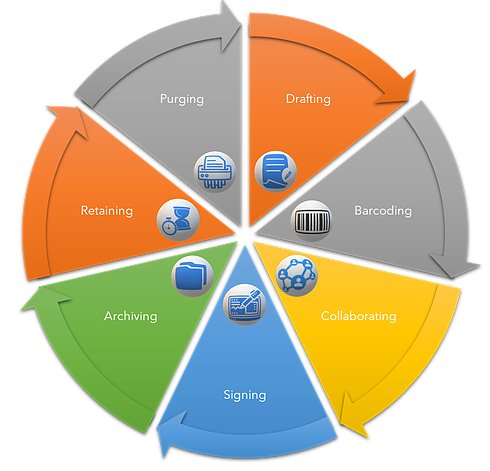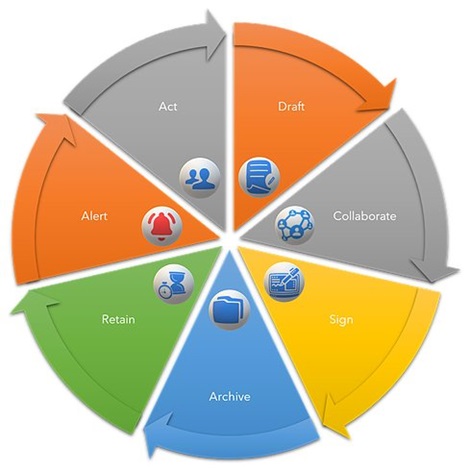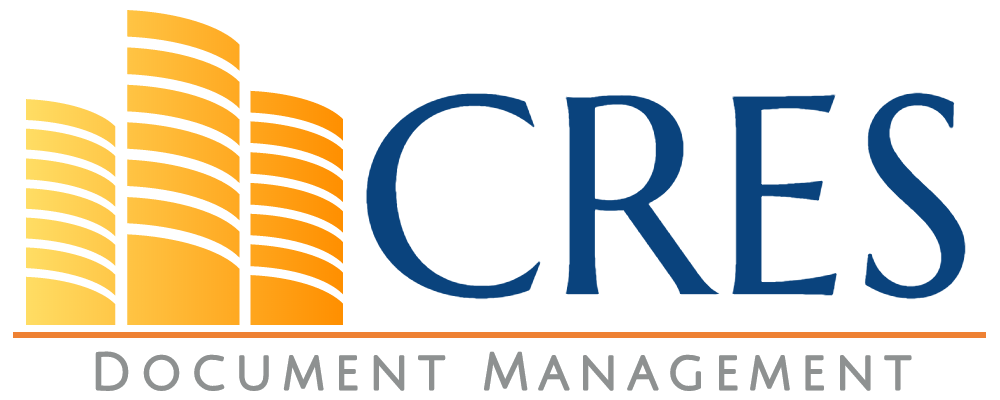
In the complex commercial real estate landscape, effective document management is more crucial. With complex transactions and a high volume of paperwork, industry professionals are increasingly turning to advanced document management systems to streamline processes, mitigate risks, and enhance productivity. This article delves into the key challenges faced by the industry and identifies the features that define a comprehensive and robust document management system.
Role of Document Management in Commercial Real Estate
Document management is an important aspect of successful commercial real estate operations. It includes the creation, collaboration, organization, retrieval, and secure storage of documents. With a comprehensive and robust document management system in place, real estate businesses can navigate transactions seamlessly, maintain compliance, and enhance collaboration among team members, buyers, sellers, tenants, and vendors.
Key Challenges in Commercial Real Estate Document Management
The real estate industry faces several challenges when it comes to document management. From the complexity of lease agreements to the need for compliance, professionals often grapple with manual and time-consuming tasks. Manually adopting previous similar documents for each transaction is prone to errors, and missing key provisions of the contracts. Misplaced documents, version control issues, and the risk of non-compliance also pose significant hurdles. Addressing these challenges requires a strategic approach and the search and adoption of a cutting-edge real estate-specific document management solution.
Understanding Commercial Real Estate Document Management
Commercial real estate document management involves the systematic handling of documents throughout their lifecycle. This includes everything from creation and collaboration to storage and fast retrieval on-demand. The scope extends to various document types such as leases, contracts, financial statements, and property records. A comprehensive system streamlines these processes using robotic process automation (RPA) and artificial intelligence (AI), enabling professionals to focus on strategic decision-making rather than administrative tasks.
Document Management Includes Contract Management


When searching for document management solutions, don’t overlook a very important feature of it. An integral aspect of commercial real estate document management is contract management. Managing real estate contracts efficiently is vital for minimizing risks and ensuring compliance. An advanced document management system seamlessly integrates contract management features, providing centralized management of working documents for collaboration and a repository for finalized documents. Equally important is the automated tracking of effective and expiration dates, and automatic unintended renewals. Without these features, Document Management is just a repository like an old-fashioned file server.
Key Features of Commercial Real Estate Document Management Systems

To meet the specific needs of the real estate industry, modern document management systems incorporate a range of features tailored to the unique needs of industry professionals. These features include:
- Lifecycle Document Management: From document drafting to archiving or destruction based on retention policies, a robust system supports the entire document lifecycle, ensuring that information is easily accessible and properly managed at each stage.
- Contract Management: A specialized module for managing real estate leases, sales agreements, and corporate contracts simplifies the creation, tracking, and compliance monitoring of critical documents, not just for real estate but corporate departments as well.
- Automatic Drafting: Automation streamlines the document creation process, reducing manual errors and saving valuable time for real estate professionals. A robust and comprehensive solution provides the ability to create Word templates that get automatically populated with real estate and corporate data.
- Internal and External Collaboration: Seamless collaboration tools facilitate communication and approvals among internal team members and sharing and negotiating with external stakeholders, fostering a more transparent and efficient workflow.
- Signature Routing: Electronic signature capabilities enhance the speed of delivery, reducing delays in critical transactions.
- Automated Saving of Finalized Documents to Document Libraries: Completed documents are automatically saved to designated libraries via AI or RPA, ensuring easy storage and retrieval.
- Document Retention Policies: Implementing document retention policies helps organizations manage data in accordance with legal and regulatory requirements. As any legal expert can tell you, keeping certain type of documents longer than you have to, can be a business liability.
Cloud-Based Document Management with Microsoft 365
Most real estate companies are already using Microsoft 365 (M365) or marching towards its adoption. As businesses increasingly embrace M365, commercial real estate professionals are encouraged to consider cloud-based document management solutions. Microsoft 365, with its comprehensive suite of productivity tools, offers a secure and collaborative environment for document creation, sharing, and storage. The integration of Microsoft 365 with commercial real estate document management systems provides a seamless experience, allowing professionals to leverage familiar tools while benefiting from advanced document management features.
Future Trends in Commercial Real Estate Document Management, Including AI
Looking ahead, the future of commercial real estate document management is tied to advancements in artificial intelligence (AI). AI-powered features such as intelligent document categorization, natural language processing, and predictive analytics are revolutionizing how professionals handle documents. These technologies will further enhance automation, accuracy, and decision-making capabilities, setting the stage for a more sophisticated and efficient document management landscape.
Conclusion
As the commercial real estate industry continues to evolve, embracing innovative document management solutions is imperative. By understanding the challenges, and selecting the right solution with a ey set of comprehensive features, real estate professionals can use document management as a means to success, with streamlined operations and robust growth.
How we can help:
CRES offers an automated solution for organizing, securing, and digitizing your documents so that you can easily manage them.

Most of our clients used traditional file servers or common cloud services for storing their documents. They struggled with finding documents and avoiding duplication. They needed a centralized location to store documents that fully integrated with their property management system. As their organizations grew, the number of documents continued to grow as well, and it became increasingly difficult to navigate through the unstructured folder maze. This is where CRES solved their problems.
CRES Document Management allows you to better organize, secure, and digitize your documents and seamlessly integrate them with your asset portfolio, departments, legal entities, loans, and transaction data. It has a built-in tool that allows document extraction based on your criteria, so you can easily share those documents with external parties. It also has a Business intelligence-based robust document analytics and search tool that allows you to search for documents across portfolios and libraries. Integrated with CRES Workflow Management, it oversees the complete life cycle of documents, from creation to purging. It simplifies stakeholder collaboration through automated approvals, compliance checks, and secure, centralized storage. Documents are archived in accordance with legal and regulatory standards.
About Irfan Butt

CRES Technology – Founder and CEO
A strategic leader with over twenty years of progressive experience in Business Administration, Finance, Product Development, and Project Management. Irfan has a proven track record in a broad range of industries including hospitality, real estate, banking, finance, and management consulting.





